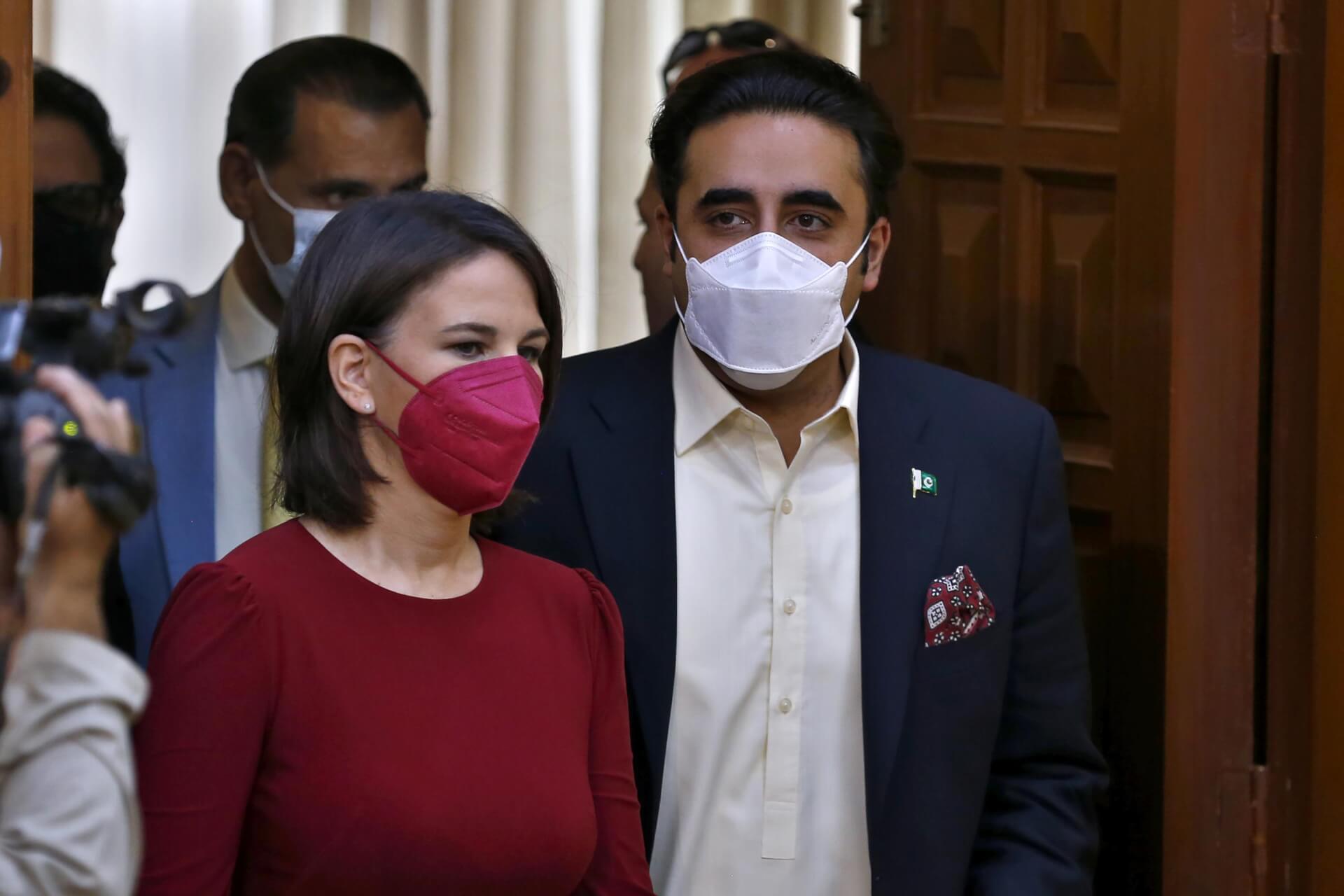Pakistan rejected India’s pushback against a joint proposal by the foreign ministers (FMs) of Pakistan and Germany for a United Nations-led (UN) initiative to resolve the Kashmir dispute, saying “India’s proclivity to hoist the bogey of cross-border terrorism whenever there is a call for increased scrutiny of its unlawful occupation and brutality in Jammu and Kashmir is well known.”
Its riposte came after Indian Ministry of External Affairs spokesperson, Arindam Bagchi released a statement on Saturday saying the joint statement made by Pakistani FM Bilawal Bhutto Zardari and his German counterpart Annalena Baerbock in Berlin ignored Pakistan’s state-sponsored terrorism.
Bagchi said, “All serious and conscientious members of the global community have a role and responsibility to call out international terrorism, especially of a cross-border nature.”
He noted that Jammu and Kashmir (J&K) has been at the receiving end of Pakistan's illicit operations for decades now, noting that the UN and the Financial Action Task Force continue their pursuit of the Pakistan-based terrorists involved in the 26/11 attacks on Mumbai in 2008.
Keeping this in mind, he underscored, “When states do not recognise such dangers, either because of self-interest or indifference, they undermine the cause of peace, not promote it. They also do grave injustice to the victims of terrorism.”
Our response to media queries on comments regarding Jammu and Kashmir during recent joint press conference of the Foreign Ministers of Germany and Pakistanhttps://t.co/sZZ88zfQVa pic.twitter.com/K3hqhLZbjM
— Arindam Bagchi (@MEAIndia) October 8, 2022
In response, the Pakistani Foreign Office said that Bhutto Zardari merely highlighted the “role and responsibility” of the international community in finding a “peaceful and just” solution to the conflict.
In this regard, it said that Bagchi’s “gratuitous remarks” had revealed India’s “desperation” and reflected its growing ‘isolation’ due to its “illegal occupation” of J&K and its “reprehensible human rights violations.”
It further asserted that “hollow denials and evasion of responsibility will no longer cover-up India’s mischievous strategy of posing as a ‘victim’ of terrorism while shifting blame elsewhere.”
It also accused India of ‘politicising’ international institutions such as the FATF to “target” Pakistan and thus urged its neighbour to abide by UN Security Council (UNSC) resolutions calling for Kashmiris' right to self-determination.
Great work teamMOFA for short but productive first trip to 🇩🇪. Keeping Pakistan floods at the top of our agenda we had fruitful conversation about climate Justice. 🇩🇪 & 🇵🇰 bilateral issues discussed at length, our relationship moving from strength to strength. pic.twitter.com/32wx8JVe9N
— BilawalBhuttoZardari (@BBhuttoZardari) October 9, 2022
The bitter exchange between India and Pakistan comes in response to a statement made by Baerbock after her meeting with Bhutto Zardari, wherein she said that Germany has a role and responsibility in the Kashmir conflict and extended support for intensive engagement through the UN to peacefully resolve the dispute.
Baerbock encouraged both India and Pakistan to participate in meaningful “political dialogue,” declare a “ceasefire,” and follow the “track of the UN,” noting that “political practical cooperation” is critical to ensuring regional security.
Agreeing with Baerbock’s statement, Bhutto Zardari said regional security is contingent on resolving the Kashmir dispute, comparing it to Russia’s military invasion of Ukraine.
Visited our Embassy @PakinGermany_ & inaugurated innovative #Pakistan Digital Tourism Corner which will provide opportunities to explore 🇵🇰 beautiful landscape, historical landmarks & discover the depth of Allama Iqbal’s poetry through virtual reality. pic.twitter.com/3QLPpFH61p
— BilawalBhuttoZardari (@BBhuttoZardari) October 9, 2022
In fact, it was not the first time Baerbock has commented on the Kashmir dispute.
During a visit to Islamabad in June, the German FM voiced her support for a UN-led solution to the Kashmir conflict and highlighted the importance of ensuring that “human rights are being guaranteed.” She called on both countries to adopt a “constructive approach.”
India has long maintained that the Kashmir dispute is a bilateral issue and firmly rejected calls for international intervention, referring to the 1972 Simla Agreement. However, Pakistan argues that India must respect a 1948 UNSC resolution that calls for a referendum in the region.
Bilawal Bhutto Zardari was on a two-day visit to Germany from 6-8 October to celebrate 75 years of diplomatic relations. He and Baerbock discussed several issues, including trade, investment, education, and energy. He also expressed gratitude for Germany’s support to Pakistan during its devastating floods and the additional $10 million flood relief aid the German FM announced during his visit.

